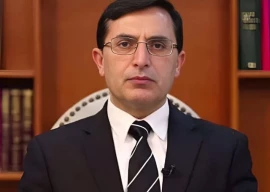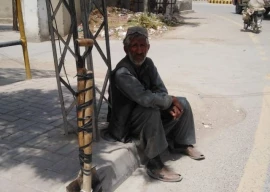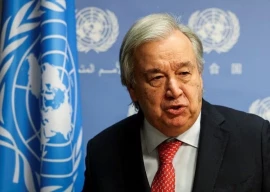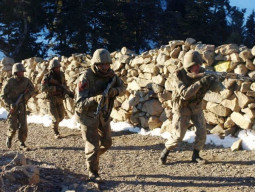
There is no universal model of masculinity; rather, there are multiple masculinities that are shaped by a variety of factors. These include class, ethnicity, institutional and political location, and patterns of consumption. This was stated by Dr Sanjeev Uprety of Tribhuvan Nepal. He was speaking at a two-day symposium on theme of masculinities and gender equality, which concluded at Quaid-i-Azam University here on Friday, said a press release issued by Amal Human Development Network.
The symposium aimed to introduce the theme of masculinities to students and faculty at the university, within a framework of gender equality and justice and encourage the participation of young men and women in activism around social justice. It also aimed to promote cross regional sharing and linkages through regional expertise working on the theme.
Dr Sabina Faiz Rashid from BRAC University Dhaka, presented a research carried out on busy bus terminals of Dhaka, addressing complexities of masculinities seen from the sexuality perspective.
A recent survey was shared that talked on the participation of women in planning and policy making of institutions involving higher education in the country. The survey stressed that structures that perpetuate a particular form of harmful masculinities need to be challenged for a sustained change.
IRC director said media always attached women’s honor with men’s esteem and depicted men protecting their esteem by using violence, which ultimately caused discrimination. The presenters urged the youth on their critical role in discourse generation and political participation. A grim situation was portrayed as far as the participation of youth in political arena is concerned.
University of Agriculture Faisalabad Vice-Chancellor Dr Iqrar Ahmed emphasised the need for open dialogue on social issues including gender-based violence and role of masculinities. He also highlighted the affirmative actions taken by his management to ensure that women in university get equal share in enrollment as well as other facilities like hostel accommodation. Chairman Department of Rural Sociology Prof. Dr Ashfaq Mann offered to sign Memorandum of Understanding with Men Engage Alliance Pakistan on further collaboration in future.
The moot was jointly organised by Men Engage Alliance Pakistan, AMAL Human Development Network, Rozan and UN Women. APP
Published in The Express Tribune, October 22nd, 2011.
COMMENTS (2)
Comments are moderated and generally will be posted if they are on-topic and not abusive.
For more information, please see our Comments FAQ

















Congratulations on the symposium. It's wonderful to hear of such events taking place around the world. Those interested in the positive roles men can play in building gender equality can find a wealth of resources here: http://www.xyonline.net/. Best wishes, Michael Flood.
Useless master degrees in gender studies being put into use here. Why not kill the debt based banking system and rid world of poverty.